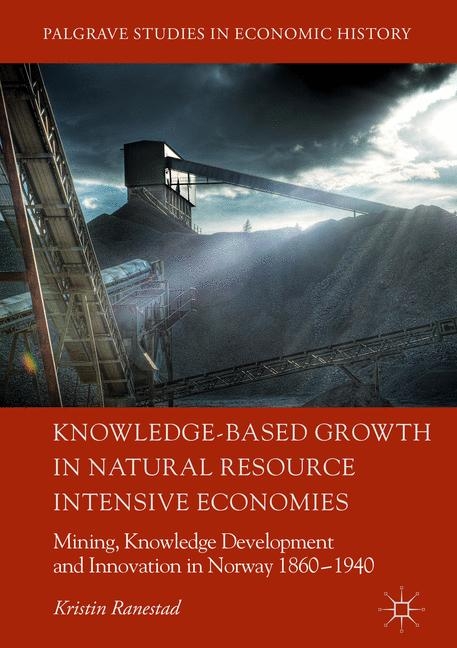
Knowledge-Based Growth in Natural Resource Intensive Economies
Springer International Publishing (Verlag)
978-3-030-40454-3 (ISBN)
Here, the case is compellingly made that a key empirical problem with the popular 'resource curse' argument is that some of the richest countries in the world - namely Norway, Sweden, Canada and Australia - have all developed fast-growing economies based on natural resources. Analysis of innovation and knowledge development in natural resource industries reveal important new insights about the role of learning and innovation. These insights are key to understanding variances in growth levels between natural resource-based economies.
Ranestad illustrates how Norway's high economic performance is built on knowledge-based natural resource industries. While Norwegian industries may have originated because of foreign technology and expertise, they thrived due to further developments carried out by organisations within Norway. Ranestad looks at how these developments were possible due to the country's high level of human capital, capacity for knowledge absorption and ability to adapt to new global technological and economic circumstances.
Kristin Ranestad is a Postdoctoral Fellow at the University of Oslo, Norway. Her research interests are in economic history, global history and the history of technology.
Part I: Theoretical and Historiographical Framework.- Chapter 1: Introduction.- Chapter 2: An Innovative and Growing Mining Sector.- Part II: Knowledge Development in Technologically Complex Mining: A Framework.- Chapter 3: Catching-up with World Mining: A Model of Mining Knowledge.- Part III: A Historical Empirical Analysis of Knowledge Organisations.- Chapter 4: The University, the Norwegian Institute of Technology (NIT), Technical Schools and the Mining School.- Chapter 5: Mining Companies: Domestic and Foreign Businesses.- Chapter 6: The Capital Goods Industry.- Chapter 7: National Geological Survey of Norway.- Part IV: Conclusion.- Chapter 8: Concluding Discussion and Remarks.
| Erscheinungsdatum | 03.01.2020 |
|---|---|
| Zusatzinfo | XIV, 285 p. 13 illus., 7 illus. in color. |
| Verlagsort | Cham |
| Sprache | englisch |
| Maße | 155 x 235 mm |
| Themenwelt | Geschichte ► Teilgebiete der Geschichte ► Wirtschaftsgeschichte |
| Naturwissenschaften ► Geowissenschaften ► Geografie / Kartografie | |
| Wirtschaft ► Allgemeines / Lexika | |
| Wirtschaft ► Betriebswirtschaft / Management ► Unternehmensführung / Management | |
| Schlagworte | Chile • Economic Development • Economic Geography • economic performance • Engineering History • GDP in Norway • geological mapping • Geology • Knowledge-based growth • Metals extraction • Mineral extraction • Natural resource intensive economies • Nigeria • Norwegian mining • Scandinavia • Smelting techniques • Technological Development • The Capital Goods Industry • Venezuela |
| ISBN-10 | 3-030-40454-4 / 3030404544 |
| ISBN-13 | 978-3-030-40454-3 / 9783030404543 |
| Zustand | Neuware |
| Haben Sie eine Frage zum Produkt? |
aus dem Bereich


